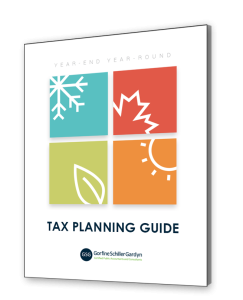With the school year over, your teenager might be taking a summer job. If so, you both may have questions about taxes. Here are some of the common concerns.
If your child chooses a typical wage-paying job, he or she will soon be confronted with the task of calculating withholding allowances on Form W-4. Claiming zero allowances and thereby withholding the maximum amount is the safest option, but it might also unnecessarily tie up hard-earned cash until this year’s tax return is filed. However, claiming too many allowances, especially if the child holds multiple part-time jobs, might cause underwithholding. For help figuring the right number, try the withholding calculator at www.irs.gov. (Look under “Filing Information for Individuals.”)
If your child decides to mow lawns or perform other tasks and be his own boss, there are a few more tax issues to consider. Such activity will likely generate taxable income, on which federal and state income taxes might be due. If net earnings are $400 or more, self-employment taxes will also be owed. These taxes can often be paid at the time that the child files a 2013 tax return, but if the income is substantial enough, estimated tax deposits might be necessary.
Being self-employed also means keeping detailed records of income and business expenses. Encourage your teen to purchase a simple low-cost ledger book to help organize the records. And when tracking income, remind the child that tips received are not just tokens of gratitude – they are considered taxable income by the IRS.
Summer jobs can provide tax breaks for some parents. Business owners can hire their own children and deduct the wages paid to them, effectively shifting income from the parent’s higher income bracket to the child’s lower bracket. What’s more, if operating as a sole proprietor, you do not have to pay FICA taxes if your teen is under age 18 nor pay federal unemployment taxes if the child is under age 21. Just remember, the wages you pay your child must be appropriate for the services actually rendered.
Looking for a little icing on the summer employment cake? When your child receives earned income, he or she can also qualify for a Roth IRA. The lower of $5,500 or the child’s annual earned income can be contributed to a Roth by the teen, parent, or someone else.
Summer employment can be your teen’s first exposure to the real world. Help them make it a tax-smart experience. If you have questions about taxes and summer jobs, give us a call.





